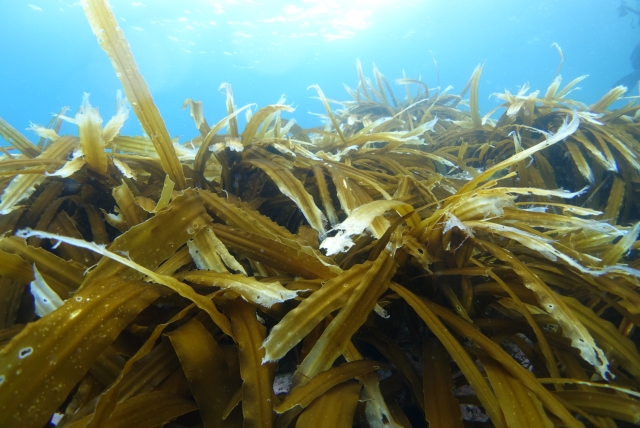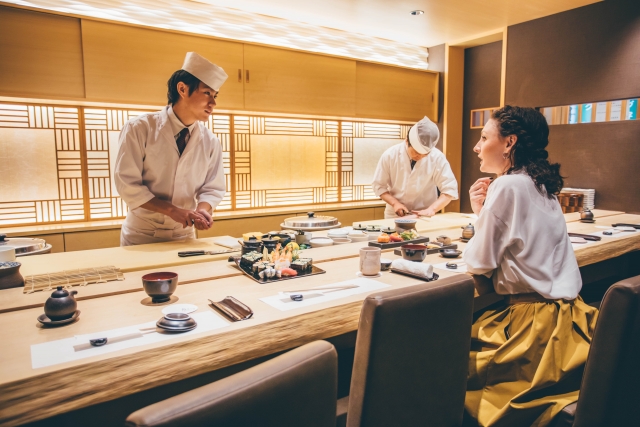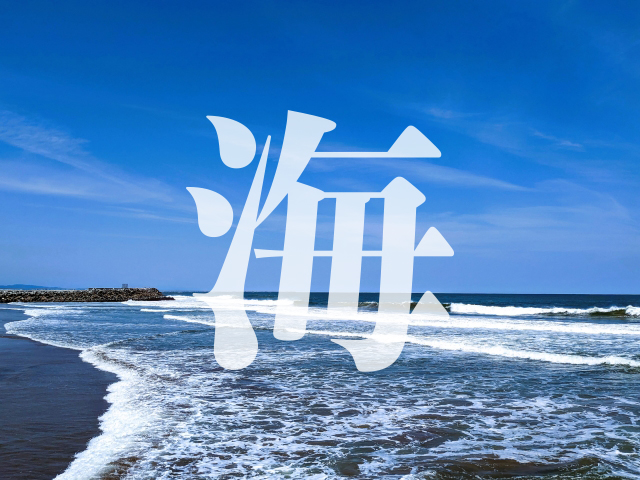Umi
Umi wa hiroi na, ookii na
Tsuki ga noboru shi, hi ga shizumuUmi wa oonami, aoi nami
Yurete doko made tsuzuku yaraUmi ni obune o ukabashite
Itte mitai na, yosono kuniLyricist:HAYASHI Ryuuha
Composer:INOUE Takeshi
in 1941
Sea
The sea is vast, it’s huge
The moon rises and the sun sets
The sea has big waves, blue waves
They sway, who knows how far they extend
Setting a boat afloat on the sea
I want to go and visit foreign lands

There are many songs about the sea, but this song is probably the first sea song that a child is exposed to.
It is a very simple song about how it feels to see the sea.
Japan is one of the few maritime nations in the world that has no national borders on the ground.
Children are probably exposed to the sea at a relatively early age, and the awe of the size of the sea is palpable.

Of course, the sea still has a special place in the hearts of Japanese people, not only as a source of food such as fish, but also as an object of healing and, as the song says, an interface to foreign lands. Songs such as “Yashi no Mi (Palm Seed)” speak of the sea as a gateway to foreign lands.

When you visit the sea, please make sure that there is a place where you can escape in case of emergency.
By the way, it is precisely because Japan has benefited greatly from the sea that a food culture such as “sushi” was born,
The taste component called “Umami,” which is said to be difficult for foreigners to detect, is mainly extracted from kelp.

While the entertainment value of conveyor-belt sushi is enjoyable, I would like people to try traditional sushi restaurants where they sit at a counter and are confronted by a sushi chef.
You will discover the magic of a dish that appears to be nothing more than a slice of fish on a bed of rice.

▼There is a monument here.
Umi and hotel packages? For luxury stay and dinner reservations, please contact us.
![]()




コメント